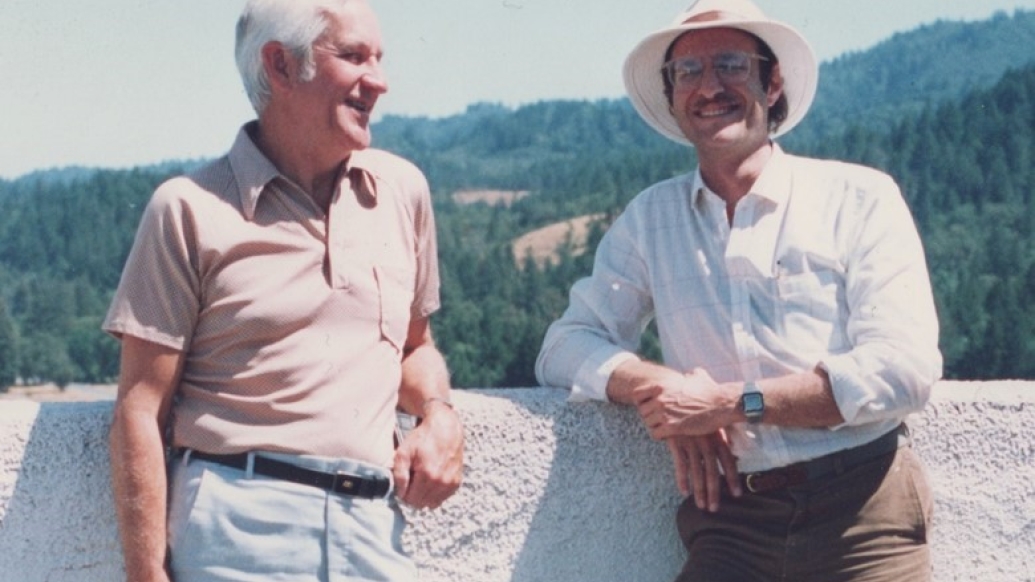Gift will accelerate discovery and innovation in virus-genome interactions in pursuit of life-changing therapies
9:00 AM

Howard B. Urnovitz, Ph.D., an alumnus of the University of Michigan (B.S. ’74; M.S., ’75; Ph.D., ’79), has committed $5 million in his estate plan to the University of Michigan Department of Microbiology and Immunology for the research and development of life-changing therapies to advance understanding of how viruses interact with their host’s inherited genes. The gift will establish the Dr. William H. Murphy Professorship and support early-career faculty in their pursuit of transformative science.
Dr. Urnovitz met William H. Murphy, Ph.D. — who was a faculty member in the Department of Microbiology and Immunology from 1957 until 1987 — as a student at U-M, and after Dr. Urnovitz’s mother passed away at age 46 of breast cancer.
“I swore that I would find the cure for cancer,” said Dr. Urnovitz. “I canvassed the entire campus and found that Professor Murphy had the perfect models for cancer research.” He credits Dr. Murphy, who studied laboratory models and the role of ancestral genes in chronic disease, with teaching him the scientific method.
“Bill Murphy armed me with the tools to start ‘The Golden Age of Virology’ where we need next-generation faculty positions to study viruses as an interactant with the host genome’s ancestral genes,” he said, referencing the transition from the first generation of medical research to welcome the revolution of the next-generation products with outcomes to prevent, control, and cure diseases.
Today, Dr. Urnovitz is CEO of FBB Biomed, a biotechnology company that uses the latest advancements in genetic sequencing and bioinformatics to develop novel approaches in diagnosing and controlling disease through RNA. Among many achievements, he built the first 10-minute test kit for AIDS, the first liquid biopsy for cancer, and has led the creation of a blood test to replace the painful spinal tap procedure. The test is able to diagnose multiple diseases with 100% accuracy in early trials. He sees Dr. Murphy’s pioneering work in the Department of Microbiology and Immunology — that was a catalyst for his own subsequent success — as the perfect academic-industrial collaboration for the greater good.
In addition, this gift, which is the largest philanthropic contribution made to the department by an individual, will support emerging scholars in virology who demonstrate a commitment to advancing our understanding of virus-genome interactions, particularly in the context of challenges such as endogenous retroviruses (inherited remnants of viral infections in the human genome that were acquired during evolution). With their work, these scholars will follow the trail blazed by Drs. Urnovitz and Murphy in their landmark 1996 Clinical Microbiology Reviews publication.
“There is no greater honor for an academic department than to have a former student recognize the value of the education and training that they received in that department as critical to their success,” said Bethany Moore, Ph.D., the Nancy Williams Walls Professor and Chair, Department of Microbiology and Immunology.
"The Microbiology and Immunology department is thrilled to see Dr. Urnovitz honor his former mentor, Dr. Murphy, and establish gifts that will support cutting edge virology research in perpetuity. The world has clearly learned the devastation that such infections can cause, and we are committed to hiring faculty that will advance the science of how viruses cause disease in different individuals.”
Scholars named to this prestigious appointment will employ modalities that include artificial intelligence and machine learning to advance the field of virology; investigate the effects of retroviruses, herpesviruses, or other chronic viral infections on health outcomes; examine health implications of co-infections involving multiple viruses; and develop innovative models to enhance understanding of viral-host dynamics and their effects on health.
“The significance of this gift will be felt for generations,” said Marschall S. Runge, M.D., Ph.D., executive vice president for medical affairs, dean of the University of Michigan Medical School and CEO of Michigan Medicine.
“We are immensely grateful to Dr. Urnovitz for his commitment to advancing medicine and enabling researchers to push the boundaries that will transition cutting-edge discoveries in this dynamic field.”





